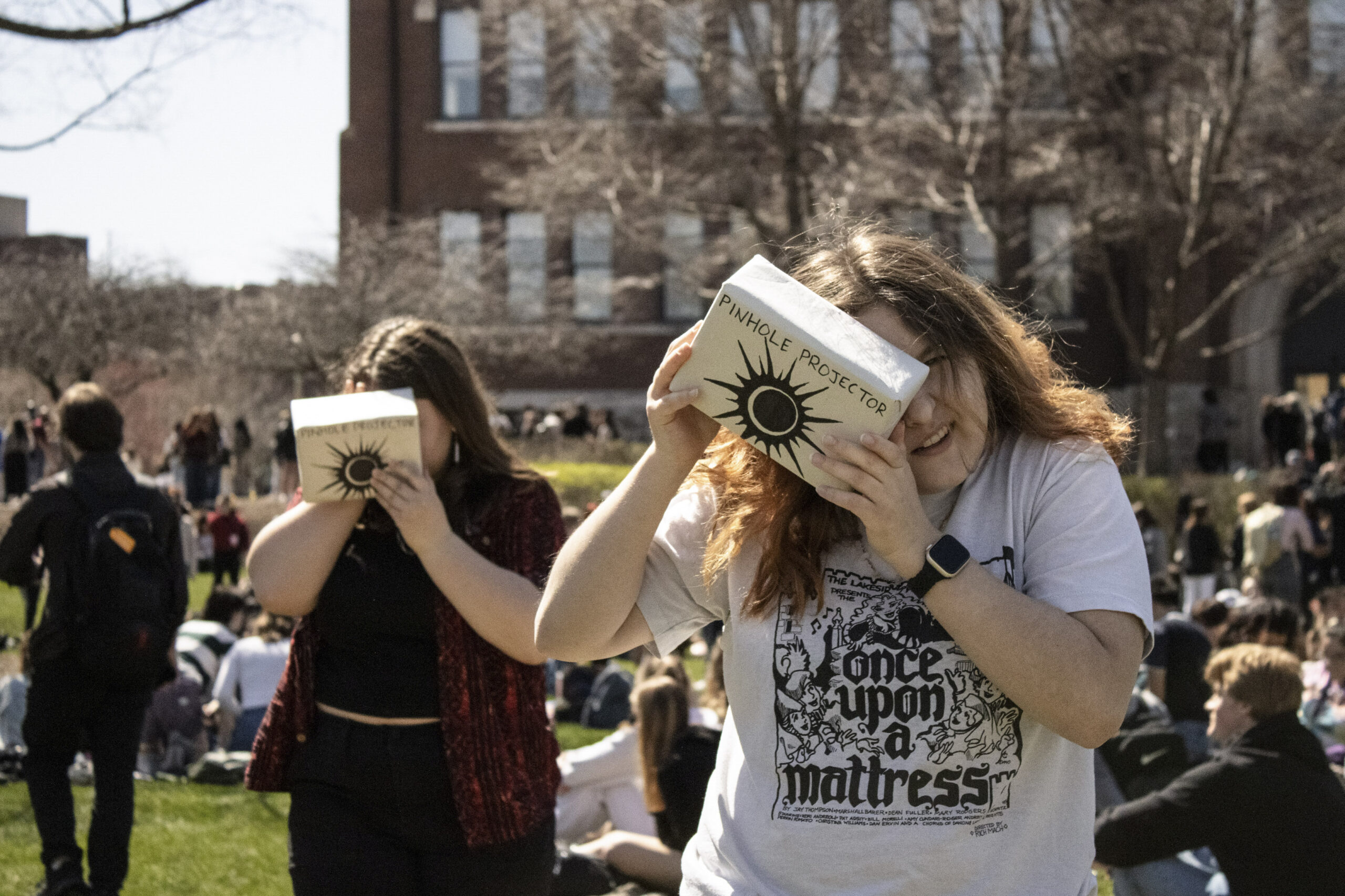REVIEW: “Drive-Away Dolls,” while lacking some of the charisma of the B-movies it draws from, is a fun romp through queer experiences.
‘Drive-Away Dolls’ Runs High on Desire

“Drive-Away Dolls” takes a queer road trip through the Bible Belt.
Directed by Ethan Coen and co-written by his wife Tricia Cooke, “Drive-Away Dolls” follows best friends Jamie and Marion searching for indecent pleasure.
The film is the first entry in a planned “lesbian B-movie trilogy,” according to a Coen interview with Collider. “B-movie” describes an inexpensive film that exploits a cultural niche, pushing against mainstream attitudes with flagrant sexuality or violence. Queer cinema is especially tied to the genre for pioneering representation with the likes of “The Rocky Horror Picture Show” and “But I’m a Cheerleader.”
“Drive-Away Dolls” is an unorthodox ode to cheaply-made sensationalism, harboring less charisma than its forebears. However, the film is a worthwhile viewing for its frequent absurdist humor and sincere relationships.
With Jamie out of a breakup and Marion tired of work, the two late-20-somethings spring on a spontaneous road trip from Philadelphia to Tallahassee. Using a paid drive-away service to bring a car to its new owner, the duo are unknowingly pursued by the owners of a briefcase hidden in the trunk.
The sex-positive Jamie and delightfully deadpan Marion are comically played by Margaret Qualley and Geraldine Viswanathan. Qualley (“Maid,” “Once Upon a Time in Hollywood”) portrays the promiscuous Texan as crass and compassionate, with Viswanathan (“Miracle Workers,” “Blockers”) providing an impassive foil with Marion’s reserved thoughtfulness.
Jamie and Marion’s gradual acknowledgment of each other’s feelings is where the film shines most. In comparison, the enigmatic B-plot’s briefcase and pursuers underwhelm.
The illusive Chief (Colman Domingo) and his goons Arliss (Joey Slotnick) and Flint (C. J. Wilson) incompetently track the unintentionally trafficked case. Between their investigations, the trio argue over interrogation methods and personal communication issues.
Despite similarities to a classic Coen (“Fargo,” “No Country for Old Men”) caper, the B-plot feels like an afterthought to the main sapphic story. Its conclusion revealing the case’s contents and backstory is surprisingly gratifying, but the story is awkwardly paced and confusingly intercut with Jamie and Marion’s romance.
Falling short in other regards, the so-called road trip angle is horrendously underutilized. Taking place over multiple days and states, Coen and Cooke (“The Big Lebowski,” “O Brother, Where Art Thou?”) actively avoid compelling scenery. One would be hard-pressed to know the film flows from Pennsylvania to Florida rather than Midwestern backroads.
The personality lacking in surroundings seems instead to be infused within the film’s editing. Erratic transitions, crashing sound-effects and creative cuts lend “Drive-Away Dolls” a spirit of immaturity — psychedelic sequences peppered throughout add further disorder.
The presentation can only be described as purposefully amateur. The film’s juvenile style is undone by Coen’s polished camerawork, resulting in an uncanny caricature of both tastes.
Regardless, the movie’s unique vision adds further credence to its comedy. Ridiculous circumstances coupled with absurd displays equal a lively ride that’s half-lewd mischief and half-bumbling investigation.
“Drive-Away Dolls” is a breezy, raunchy comedy running at just under an hour and a half. Its faults in plot and presentation are recouped through heartfelt depictions of female sexuality and audacious humor.
Coen and Cooke’s next feature “Honey Don’t!” might find course correction with cast additions Aubrey Plaza and Chris Evans. If not, the filmmaking duo’s trilogy might measure up to just being simple, spicy fun.
“Drive-Away Dolls,” rated R, is in theaters now.
Featured image courtesy of Focus Features










